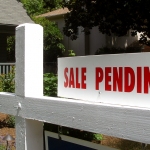
Owning your first home is a rite of passage — a marker of true adulthood. For those privileged enough to buy a house, it is often the first step in building wealth. But millennials are not achieving that milestone at the same rate that Baby Boomers and Gen Xers did at their age. Frank Stasio, WUNC, StateofThings host, examines the racial gap in home ownership and the current relationship between homeownership and wealth building in the American economy with Roberto Quercia. Quercia is the Harris distinguished professor in the department of city and regional planning at the University of North Carolina at Chapel Hill and co-author of “A Place Called Home: The Social Dimensions of Homeownership” (Oxford University Press/2017).
 Listen
Listen
Host Frank Stasio looks at the barriers to millennial home ownership with Jung Choi of the Urban Institute; Sasha Kanarski, Triangle-based real estate agent for The Spot Studio; and Roberto Quercia, Harris distinguished professor in the department of city and regional planning at the University of North Carolina at Chapel Hill and co-author of ‘A Place Called Home: The Social Dimensions of Homeownership.’
Quercia on the role of home ownership in today’s economy:
When manufacturing was king in this country, homeownership was great because manufacturing requires a stable economy, a stable workforce. These days we live in a knowledge-based economy and so home ownership is not as necessary as before for wealth building. I think most millennials as they have done have invested more in education, in human capital that they carry to build wealth. So, we know from research, that those that buy a house do build wealth compared with those that do not, but that’s not the panacea to a bright future or a certainty as it used to be.
Quercia on redlining and its impact today:
Although we banned those practices a long time ago, the legacy continues. And in addition to that, many low income communities are exposed to other local problems. Like for example, if a community needs a new place for the landfill, often it’s located close to a low-income community, so that can impact their property values. So there are a lot of issues, both historically, in terms of legacy, but also at the local level that affect the ability of low-income homeowners or homeowners of color to accumulate wealth via homeownership.
_________________________________________________________________________________________________________________________
Is The American Dream Out Of Reach For Millennials?
Program: State of Things
By AMANDA MAGNUS & FRANK STASIO
SEPTEMBER 2020